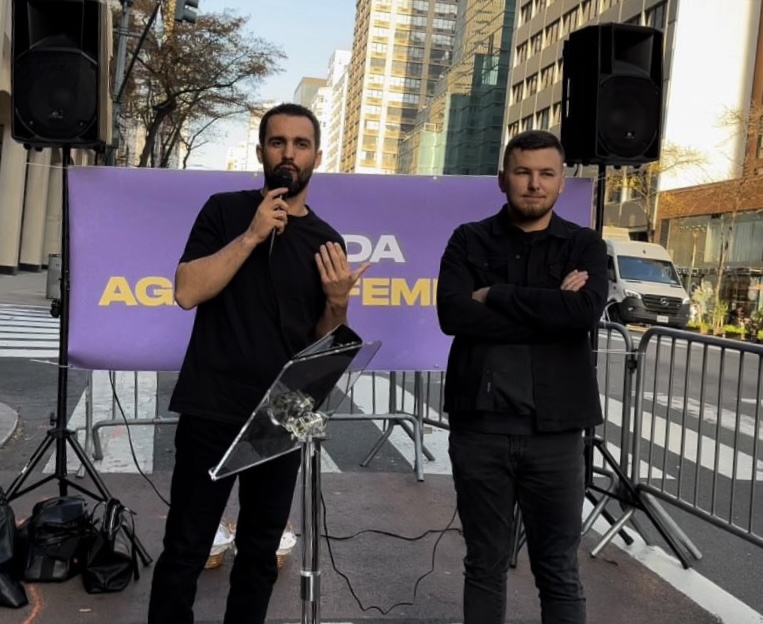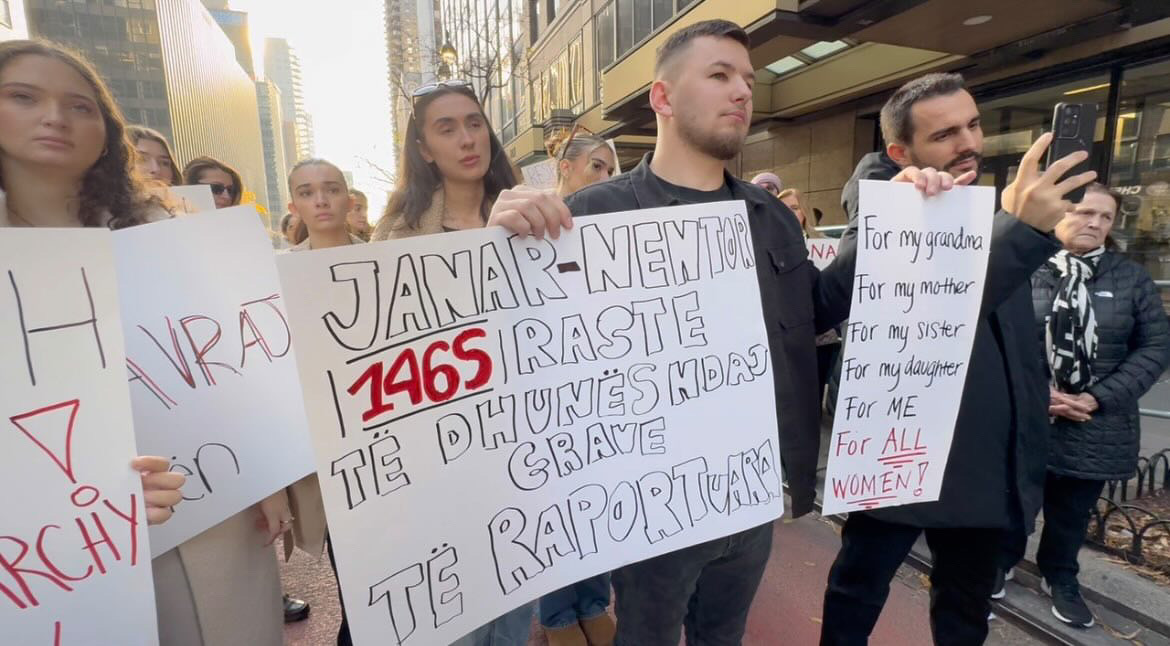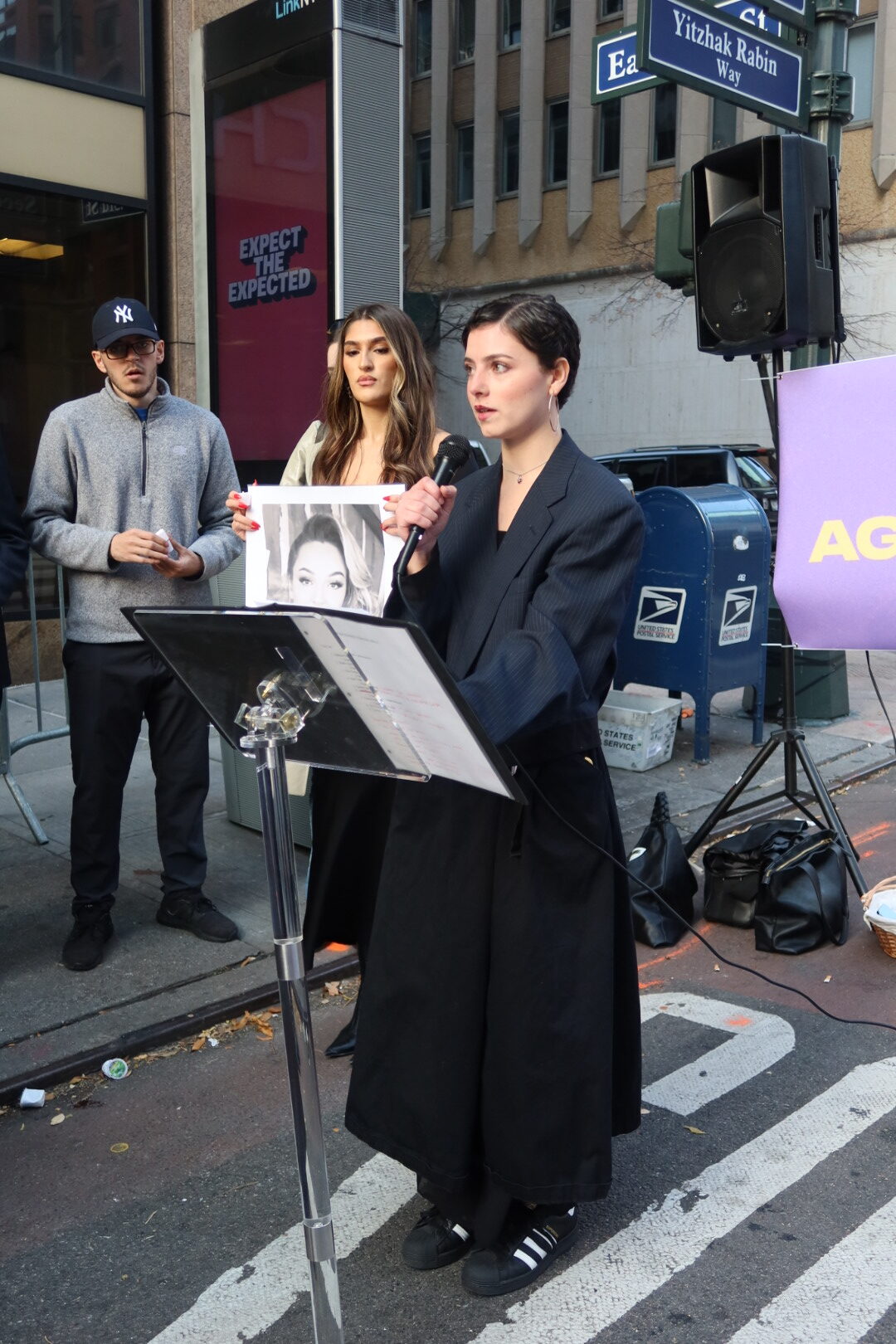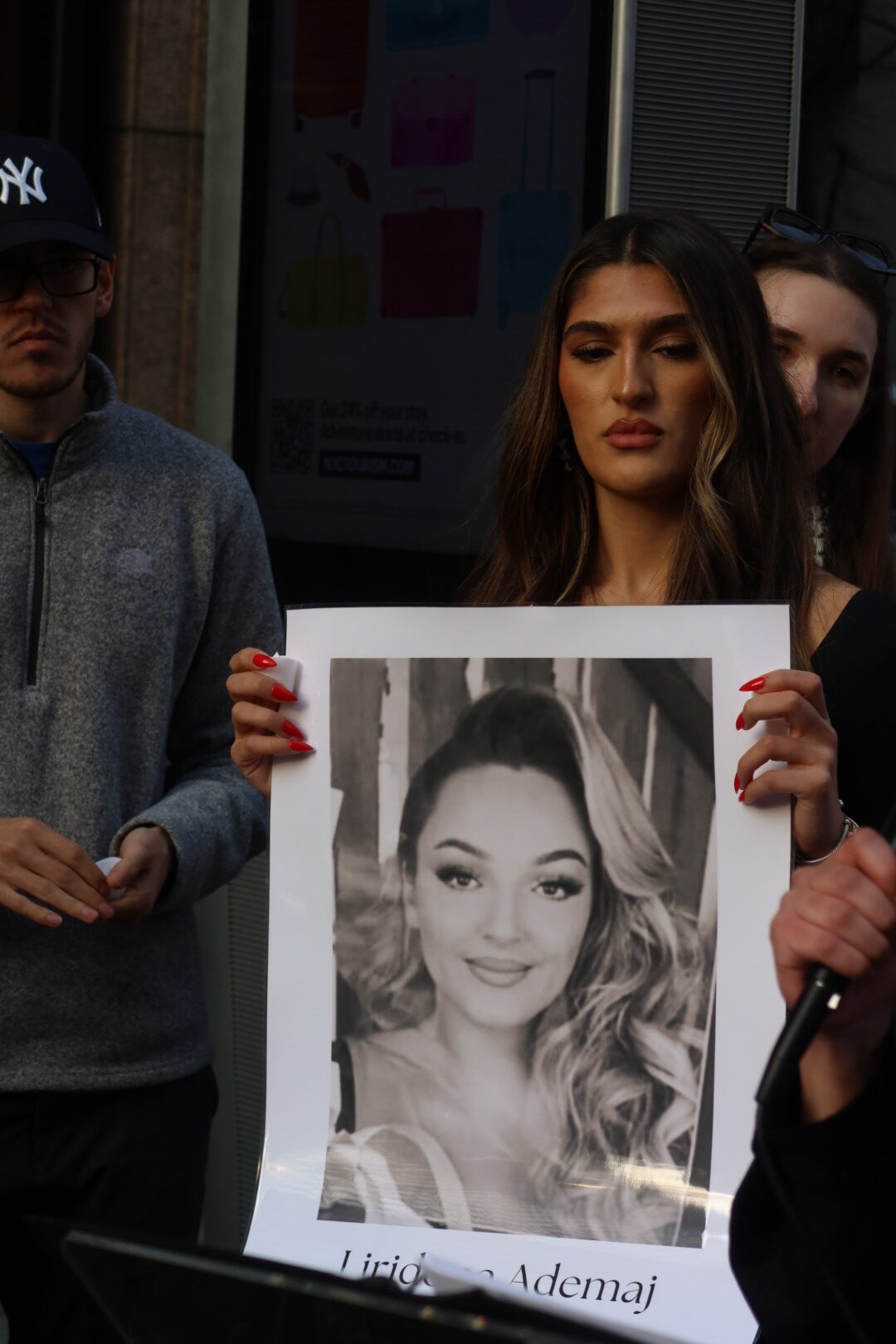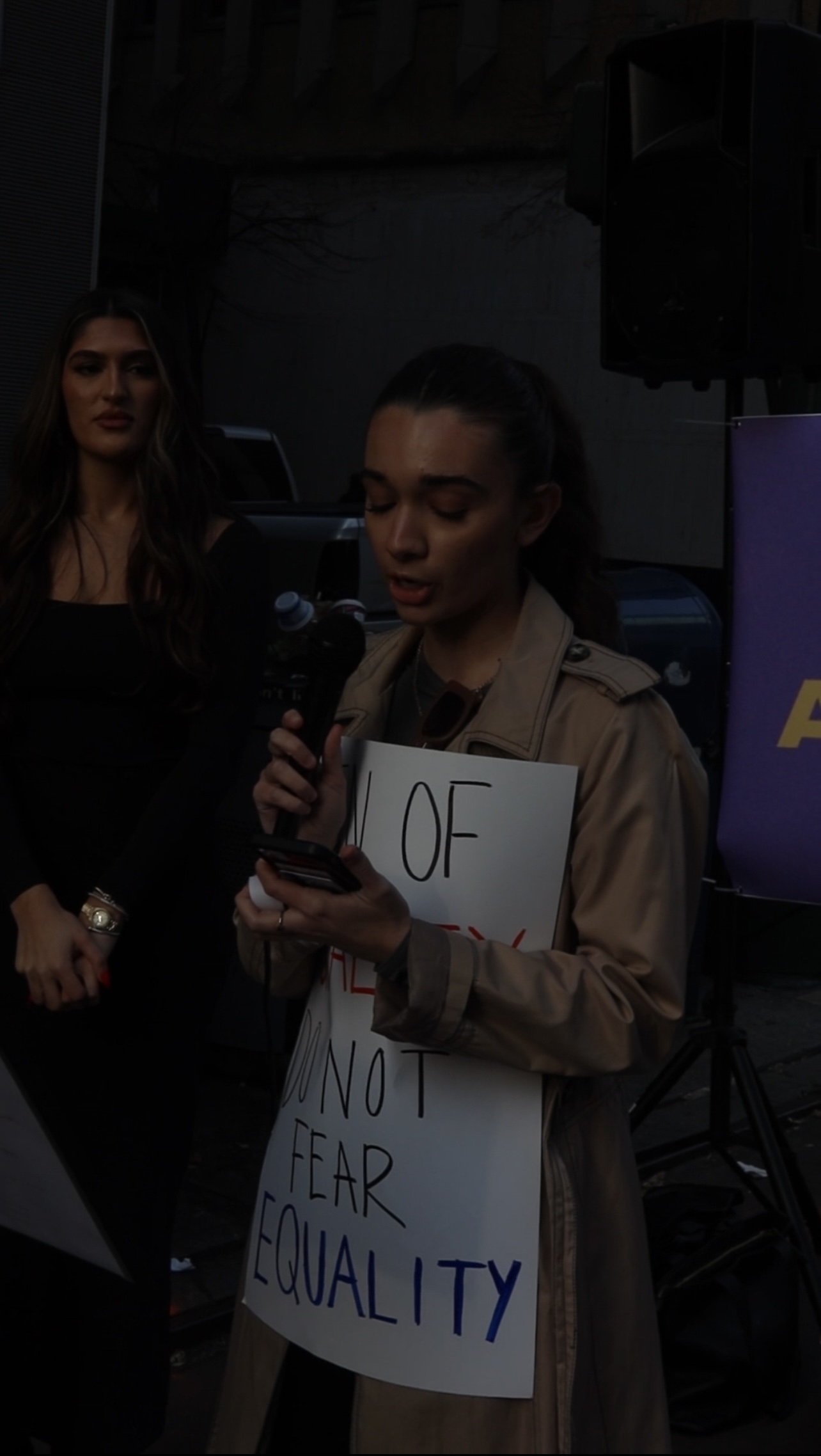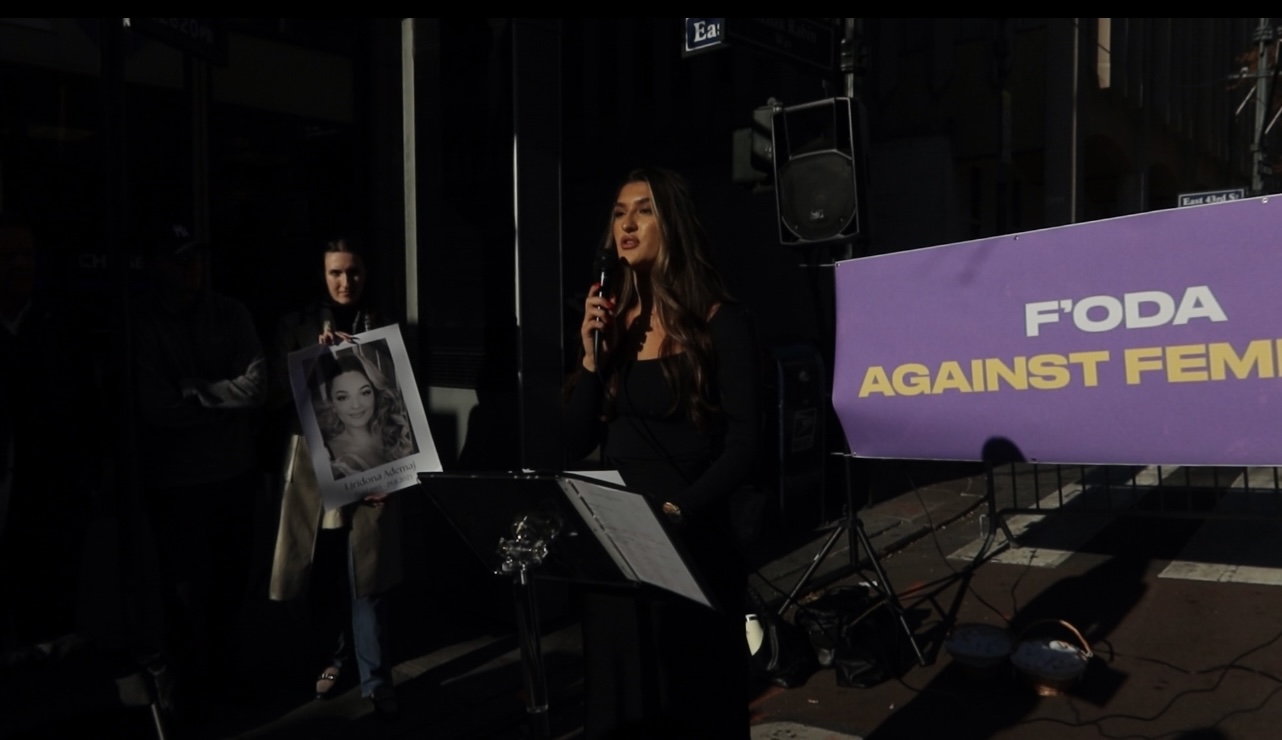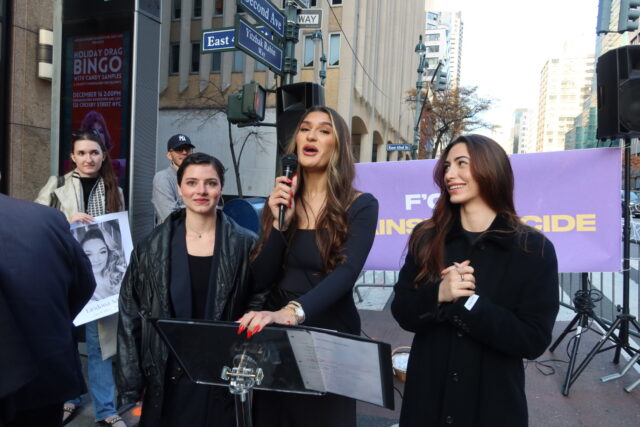Rafaela Prifti
In the aftermath of the killing of Liridona Ademaj in Kosova in a case of domestic violence, a rally was called on Saturday at corner of 42nd Street and 2nd Ave by F’Oda, a Women’s Advocacy Group. As the public outrage has cut across demographics and geographic locations, organizers in New York aim to bring change to the entrenched issue of gender based violence. President of F’Oda, Djellza Pulatani addressed the crowd on Saturday by first talking about Liridona, an accomplished woman, mother of two small children, reportedly killed in an alleged murder-for hire-scheme by her husband, Naim Murseli. In her remarks at the rally, Djellza reflected on the gender social norms that result in “being treated as a secondary being” – a citizen of a lesser social status assigned to women in a patriarchy which consequently subjects them to violence. To drive the point further Dita Dreaj, F’Oda partner and podcast host of Vajza + Gra, recited a poem she dedicated to the fear associated with “just being a woman.”
Gender based violence is not an Albanian issue. Community activist Beti (Bedrije) Tola put it in the context of Albanian gender norms and the social stigma surrounding divorce. According to police and news reports, Liridona Ademaj had filed for divorce from her husband, Naim Murseli, currently in the custody of Kosova Police. From the time of the Albanian traditional Code of Ethics, Kanuni, Albanian men are perceived as protectors of the family. “The acts of violence suffered by Albanian women at the hands of their life partners and spouses are incomprehensible in that context,” said Gjek Gjonlekaj, former VOA correspondent, Albanian Language Service.
Kosova Police have been commended for acting swiftly in making four arrests in the case. Bringing the perpetrators to swift justice is seen as a measure that serves as a deterrence. Yet organizers believe the issue goes beyond justice in the strict legal sense. It links directly to gender equality and social justice. The case of Liridona Ademaj is not an isolated case of gender based violence but rather reinforces the importance of a global conversation, that speakers like Dora Nano, one of the F’Oda partners, believe is starting to gain some traction. “It is within our collective voice that we find the strength for change,” said Dora, NYU Film and Documentary senior student.
In June, UNDP published a report showing that gender biases remain entrenched in the last decade. The severe under-representation of women and “a broken link between women’s progress in education and economic empowerment,” are the causes of the stagnation cited in the agency’s report. Authors write that “Despite the continued prevalence of bias against women, the data shows change can happen.” Fordham students and United Student Government Representatives Fiona Shehu and Desara Murati expressed the view that “Liridona could have been any of the women in our lives” and “the way to address the issue is to focus on being advocates of change.”
A number of speakers pointed out at the stark contrast between Albanian women with incredible achievements in the music and tech/AI world, and the violent murders like Liridona Ademaj’s that has jolted the community. Harnessing public and personal outrage in order to encourage change in and around us was a view shared by protestors who joined the rally from all Albanian lands and all age groups. Lorik Berisha, Medical Student at New Jersey Medical School said that “we need to go from this senseless act to actively championing gender equality.”
Former NYC Council member and leading community activist, Mark Gjonaj energized the crowd with his remarks and chanting “We are few but speak for many.” “Today, we give voice to the voiceless and stand up for those who suffer in silence,” said Gjonaj.
“Advocacy work for all women and girls is the purpose of F’Oda – an initiative that was put in motion by six girls who came together last year,” said Djellza Pulatani. In the face of severe inequality, there are some encouraging sings “as the narrative is shifting and the conversation on gender based violence is gaining momentum,” she added.
F’Oda will host its second Summit for High School students in the summer of 2024. As the group continues to fight against all forms of gender inequality, its mission centers in empowering girls as well as equip them with resources and connections to empower others.
